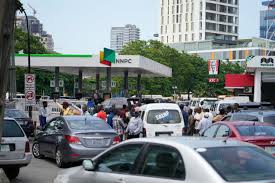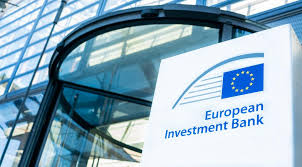According to the chief executive of Nigeria’s state-owned oil company, NNPC Ltd, private companies may start importing gasoline as early as this month. NNPC Ltd is ending its crude exchange agreements with merchants and will pay cash for gasoline imports.
The action is a component of Bola Tinubu’s intentions, which include deregulating the gasoline industry and easing the strain on public budgets.
The decision by Tinubu to end an expensive fuel subsidy, which went into force last Tuesday and quadrupled gasoline prices, infuriated labor unions, who threatened to go on strike starting on Wednesday if the decision was not reversed.
Since 2016, because it lacks the capital to make the purchases, NNPC has been acquiring gasoline from groups of international and domestic trading companies and paying them back with crude oil under arrangements known as Direct Sale Direct Purchase (DSDP).
“We virtually terminated every DSDP contract over the past four months. And we now have a procedure that is independent of us, so we can pay cash for the imports,” Kyari told reporters in a late-Saturday interview.
For the first time, NNPC has announced that it is ending crude swap agreements. The NNPC will be able to pay for its purchases in cash by importing less gasoline, as private enterprises import the majority of it.
Nigeria is the largest producer of crude oil in Africa, yet it imports the majority of its processed goods since its refineries are in disrepair.
NNPC’s debt to traders increased as a result of a large decline in oil production last year and elevated world fuel prices as a result of the conflict in Ukraine. According to a September 2022 NNPC report to the Federation Account Allocation Committee, it owed the consortiums roughly $2 billion.
Although fewer than in previous months, a source from the industry with firsthand knowledge of the situation claimed that NNPC was nevertheless allocating crude for fuel swaps for July loading. The NNPC also allocated crude to the swap contracts held by the consortiums in its report on March’s crude oil loadings.
According to Kyari, private companies may begin importing gasoline as early as this month as the NNPC’s stranglehold on the market was about to break.
According to Kyari, as of Friday, Nigeria’s total output of petroleum and condensate was 1.56 million barrels per day (bpd). 1.742 million bpd of Nigeria’s OPEC oil quota has been difficult to satisfy because of widespread oil theft and unlawful processing.
This has led to concerns about Nigeria’s ability to supply the 650,000 bpd Dangote Refinery, which recently began operations. The refinery will get 300,000 bpd of oil from NNPC under a contract.




















